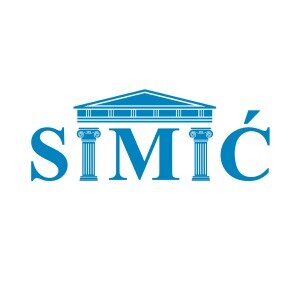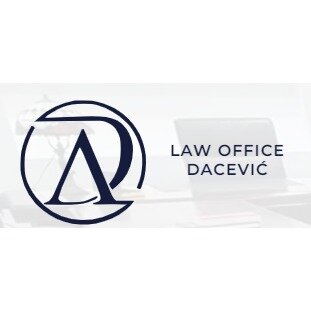Best Trusts Lawyers in Novi Sad
Share your needs with us, get contacted by law firms.
Free. Takes 2 min.
List of the best lawyers in Novi Sad, Serbia
About Trusts Law in Novi Sad, Serbia:
Trusts law in Novi Sad, Serbia governs the establishment and administration of trusts, which are legal arrangements where a person (the settlor) transfers assets to a trustee to be managed for the benefit of beneficiaries. Trusts are commonly used for estate planning, asset protection, and charitable purposes.
Why You May Need a Lawyer:
You may need a lawyer for assistance in creating a trust, interpreting trust documents, resolving disputes among beneficiaries or trustees, updating trust provisions, or handling tax issues related to trusts. A lawyer can provide guidance on the legal requirements and implications of trusts in Novi Sad.
Local Laws Overview:
In Novi Sad, Serbia, trusts are governed by the Law on Trusts and Foundations. This law sets out the legal framework for the establishment, operation, and termination of trusts. It also outlines the rights and obligations of trustees, beneficiaries, and settlors. Additionally, tax laws may apply to trusts, so it is important to consult with a legal professional who is well-versed in Serbian trust law.
Frequently Asked Questions:
1. What is a trust?
A trust is a legal arrangement where a person (the settlor) transfers assets to a trustee to hold and manage for the benefit of beneficiaries.
2. How do I create a trust in Novi Sad, Serbia?
To create a trust in Novi Sad, you need to draft a trust deed outlining the terms and conditions of the trust and appoint a trustee to manage the trust assets.
3. Can a trust be contested in Novi Sad?
Yes, trusts can be contested in Novi Sad, particularly if there are disputes among beneficiaries or if there are allegations of trustee misconduct.
4. What are the duties of a trustee in Novi Sad?
Trustees in Novi Sad have a duty to act in the best interests of the beneficiaries, follow the terms of the trust deed, manage trust assets prudently, and keep accurate records of trust transactions.
5. Are there tax implications for trusts in Novi Sad?
Yes, trusts in Novi Sad may be subject to taxes on income, capital gains, or inheritance, depending on the nature of the trust and the assets held within it.
6. Can I change the terms of a trust in Novi Sad?
In some cases, the terms of a trust can be modified through a process known as trust variation, which may require court approval depending on the circumstances.
7. How can a lawyer help me with a trust in Novi Sad?
A lawyer can assist you in creating or amending a trust, resolving disputes, interpreting trust documents, and ensuring compliance with Serbian trust laws.
8. What happens to a trust when the settlor passes away?
Upon the settlor's death, a trust may continue to exist according to the terms of the trust deed, with a new trustee appointed to manage the trust assets.
9. Can a trust be revoked in Novi Sad?
In some cases, a trust may be revoked if all beneficiaries and the settlor agree to terminate the trust or if certain conditions specified in the trust deed are met.
10. How can I protect my assets through a trust in Novi Sad?
By creating a trust, you can transfer ownership of your assets to a trustee for the benefit of your chosen beneficiaries, providing a level of protection from creditors, legal claims, and probate.
Additional Resources:
For more information on trusts in Novi Sad, Serbia, you may consider contacting the Chamber of Public Enforcement Officers, Serbian Bar Association, or the Ministry of Justice for relevant resources and guidance.
Next Steps:
If you are considering creating a trust in Novi Sad, Serbia, or need legal assistance with an existing trust, it is recommended to consult with a qualified trust and estate lawyer who can provide personalized advice and guidance based on your specific circumstances.
Lawzana helps you find the best lawyers and law firms in Novi Sad through a curated and pre-screened list of qualified legal professionals. Our platform offers rankings and detailed profiles of attorneys and law firms, allowing you to compare based on practice areas, including Trusts, experience, and client feedback.
Each profile includes a description of the firm's areas of practice, client reviews, team members and partners, year of establishment, spoken languages, office locations, contact information, social media presence, and any published articles or resources. Most firms on our platform speak English and are experienced in both local and international legal matters.
Get a quote from top-rated law firms in Novi Sad, Serbia — quickly, securely, and without unnecessary hassle.
Disclaimer:
The information provided on this page is for general informational purposes only and does not constitute legal advice. While we strive to ensure the accuracy and relevance of the content, legal information may change over time, and interpretations of the law can vary. You should always consult with a qualified legal professional for advice specific to your situation.
We disclaim all liability for actions taken or not taken based on the content of this page. If you believe any information is incorrect or outdated, please contact us, and we will review and update it where appropriate.










